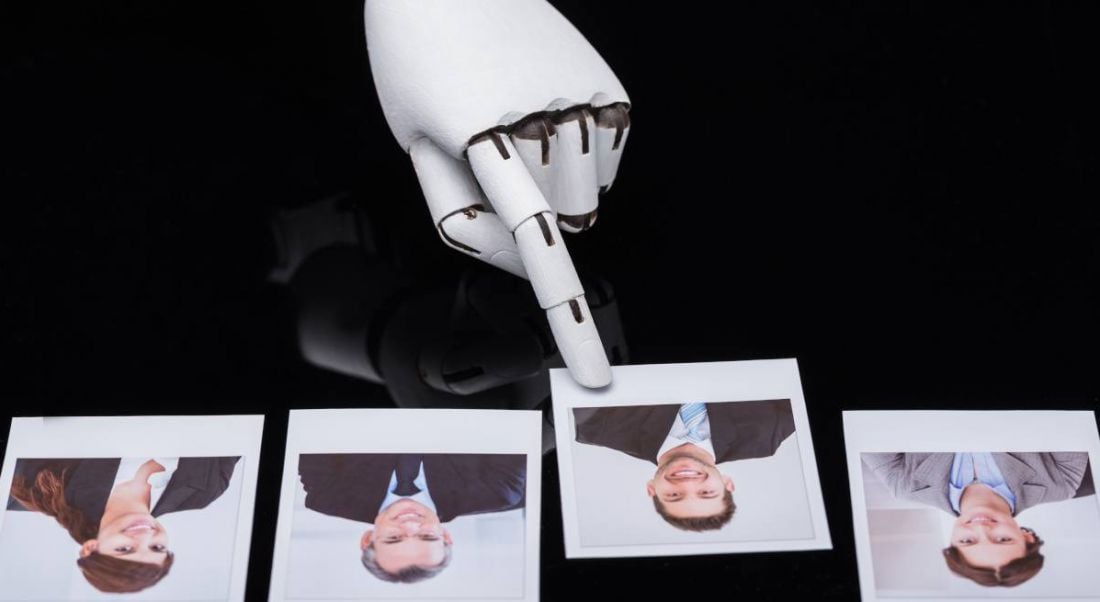It is easier than ever for jobseekers and potential employers to simplify job hunting using advanced AI, but some would argue that it is killing the screening process.
Job hunting tends to involve more than just the candidate looking to make a career move. Recruiters, HR teams and of course the employers themselves aim to build upon their existing network with a talented hire.
For all sides of the equation the process of job applications and reviewing can be drawn-out, often resulting in little success for both the candidate and the employer, which is why many professionals have turned to AI technologies, hoping they will increase their chances of getting positive results.
According to Vrijen Attawar, CEO of The ApplyAI, an AI-powered career tools provider, there is an over-reliance on AI in the jobs ecosystem, which has damaged the quality of candidate applications as well as the employer screening process.
From a jobseeker’s point of view, Attawar noted the excessive number of CVs issued by auto-apply tools as being a major hindrance to a candidate’s chances of success.
“The problem is that often these tools are optimised for the total number of applications. They lead a candidate to focus on the amount, not on the quality. With auto-apply, you can’t ensure your materials are tailored for each role and in all likelihood, the tool is submitting applications to roles you might not be suited for,” he said.
“The end result is that recruiters have even more work to do and they respond by tightening their selection criteria, which ultimately hurts non-traditional candidates and career switchers.”
On the other side of the process, the reliance on AI technology to filter out unsuitable candidates has led to an unfortunate bias within the system, whereby applicants that don’t fit the specific industry mould have very little chance of a fair review.
“Probably the biggest issue with using AI in job screening has to do with the implicit biases that exist in AI software, particularly while it is still relatively immature as a technology,” stated Attawar.
He noted instances of AI résumé screeners showing favouritism to CVs that included hobbies traditionally associated with men, as well as “facial recognition AI scoring minority candidates lower on body language for no discernible reason”.
“The reality is that the software industry is hyper-competitive and the rush to get products to market often means that companies resort to using the most easily available sources of data, not the most representative or ethical,” he explained.
Man versus robot
As the world moves towards a reality that heavily involves input from AI and machine learning models, Attawar declared the human element of job hunting and recruitment to be absolutely vital.
He finds there is massive risk associated with placing your trust in AI to effectively carry out a process as important as recruitment, but more so he asks employers to consider what that says about your organisation to new employees.
“The hiring process is their first interaction with your organisation and thus your first opportunity to set the tone for your relationship with this individual. De-personalising the process by making it entirely or predominantly AI-driven not only puts you at a disadvantage compared to other companies that retain the human element, it also makes you lose out on the ability to convey impactful messaging about your organisation.”
Attawar believes there has been an aggressive shift towards AI in as many areas of the process as one can realistically manage, which he noted is not necessarily negative when it compliments human evaluation. However, he emphasised that there should be significant thought given to what this will achieve.
“The best way to create a balanced process would be to have a ‘human in the loop’ at key points of the job application process, either as a checkpoint in itself or to audit the AI’s results to ensure that they are consistent with the company’s hiring objectives,” he said.
Achieving balance
As an advocate against using auto-apply technologies, Attawar does recognise the need to balance the level of work against the overall volume of submissions, stating that the best course of action would be to create a strong set of baseline materials, for example cover letters and outreach messages, and then use AI to adapt them to individual roles.
“I would also tell most candidates to spend more time on a smaller number of roles to which they are highly suited and excited by, ideally a combination of networking and applying more carefully, rather than the ‘spray and pray’ approach that is common. This is particularly true for larger companies, where the first barrier to entry is almost always a keyword-based ATS [applicant tracking system].”
Simply put by Attawar, if you aren’t going to optimise your CV or other application materials with these systems in mind, it is highly likely that you will be screened out.
Looking to the future, Attawar said he would expect employers to become more judicious in their use of AI in the hiring process, using features to help with administration-type issues, rather than making final determinations on candidacy.
He also stated that jobseekers will likely alter their use of AI technologies as they improve their understanding of how to make an impact. “I foresee candidates becoming wise to the deficiencies of blind reliance on AI to augment their approach to applying to jobs, because the results will eventually not be what they are expecting.
“Ultimately, people are still hiring people to work with people. The human element is critical in that process.”
Find out how emerging tech trends are transforming tomorrow with our new podcast, Future Human: The Series. Listen now on Spotify, on Apple or wherever you get your podcasts.




